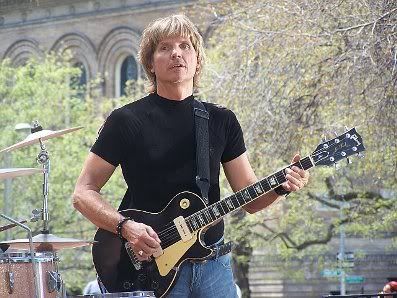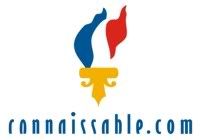Robert Urban answers our questions about contributing music to films
Robert Urban, a New York based musician and songwriter, who is also known for producing musical events and concerts, answered some of our questions about allowing filmmakers make use of his music in films.
Q. Thank you for agreeing to this interview. You have worked on several film projects. Tell me a little bit about that. You have contributed music to some films? Have you also done some music editing?
A. One upcoming film genre for which I’ve composed music for is gay horror flicks. “What is that?” you say? Well – is basically the same silly fun as straight horror flicks, except the cute dumb girl that goes down in the cellar alone when everyone in the audience knows there’s a psychokiller down there – is instead a cute dumb gay guy. I’ve created soundtracks for such gay slasher film fluff as Dead Guy, Das Haus, Zombies and Camp Daze.
I’ve also provided music for Michigan Pride’s documentary Pride Through the Years – 15 years of Pride Fests; the gay coming out film Paradise Attempted; and the gay-related Ticket to Freedom biopic about gay man who made the Woodstock Festival possible.
Q. When you first started working as a musician, did you think your music would end up being used in films?
A. Never in a million years! Though now I realize there was a reason that as a little kid, I was so glued to old flick reruns on the TV of King Kong, Shanghai Express and The Hunchback of Notre Dame. I loved the soundtracks to golden age Hollywood films – I hummed them as a kid and I still do today.
Q. In 2005, you won a Stonewall Society Pride in the Arts Film Arts Award. What was that award for ?
A. That was for sound-editing – I believe was for one of more of the gay horror flicks. It may have been for How Do I Look. I actually can’t recall.
Q. As a musician, you get to compose your own music, write your own lyrics. What is the process like when you turn over the use and editing of your song over to a filmmaker?
A. It’s like I’m the surrogate mother whose been paid to have a baby – but has to turn the kid over to someone who’s gonna have their own way with it. It’s a cauldron of conflicting emotions and always drives me nuts. But over the years one gets used to it – knowing that one’s offspring is going to be cut up and used in all kinds of odd ways.
But sometimes the end result is tasteful and even surprising in a good way. There are also many instances where I watch a scene and can compose music specifically to match every move and emotion on the screen. That is very exciting and rewarding.
Q. Because How Do I Look was a community empowerment project, Wolfgang used a series of "work-in-progress" screenings in order to create transparency and to build a concensus of support among the Ballroom community and the LGBT community for his documentary. How unusual was it for a filmmaker to open up an "evolving" documentary to the input/feedback/criticism of a lot of people in the community?
A. Having been witness to the “work-in-progress” screenings, I can tell you it’s an EXTREMELY unusual thing to do – especially given the varying temperaments of the “stars” of the film, and how everyone has their own STRONG opinion on gay political correctness, etc. ( I call them the “outer-than-thou” crowd). But all-in-all, I believe everyone knew that this was a pure labor of love on Wolfgang’s part. It was very generous of Wolfgang to do this. I don’t know if I could have done it that way if it was my film.
Q. You have a working relationship with MTV/Logo. How helpful is it to have contacts in the industry to a musician or a filmmaker?
A. Actually, as a contributing writer to Logo’s arts and entertainment magazines, I endeavored at all times to be neutral when doing reviews, interviews and feature articles. I would turn down assignments if I otherwise was too professionally involved with the subject or subject matter.
In my life I’ve never been that into “schmoozing” for my musical career. That kind of thing is better left to agents and management types. I’ve been fortunate in that most of the film soundtrack work I’ve gotten is because someone simply heard my music and liked it.
Some gay writers write only positively about gay arts & culture. I found myself to be more critical, when my conscience dictated, of LGBT films, music, books, theater, television shows, etc than most gay media writers I know of. I think the gay establishment is now “established” enough to allow for some criticism from within its own ranks when criticism is merited.
Q. Do you have any advice for people who are interested in music and the use of music in filmmaking?
A. In these current times – when anyone with a computer can make music and films – and when there are an infinite number of musical acts out there – so many, in fact, that the music industry is imploding about us and no one is buying cds anymore – YOU GOTTA REALLY LUV DOING THIS!
The fine line to walk is actually the fine line of being able to be both an original singer/songwriter/composer of integrity and social conscience AND a successful commercial composer at the same time. The two are often not very friendly bedfellows.
In addition to his own 4 CDs (the album "godless" is available on Amazon.com), Robert Urban's work (especially as guitarist) can be heard on the recordings of many other musical artists. Mr. Urban is also an accompanist, session-musician, arranger/sound engineer and private music teacher. He supports the GLBT music community through producing/hosting Urban Productions BOLDLY Presents, the all-GLBT multi-artist live-in-concert music series (now in its 6th year). Robert is the author of a poetry collection Abominations and founder of Gay Guitarists Worldwide.
For the first part of our exclusive interview with the musician and songwriter, Robert Urban, please visit the Dance on the Runway blog.

Save to del.icio.us


